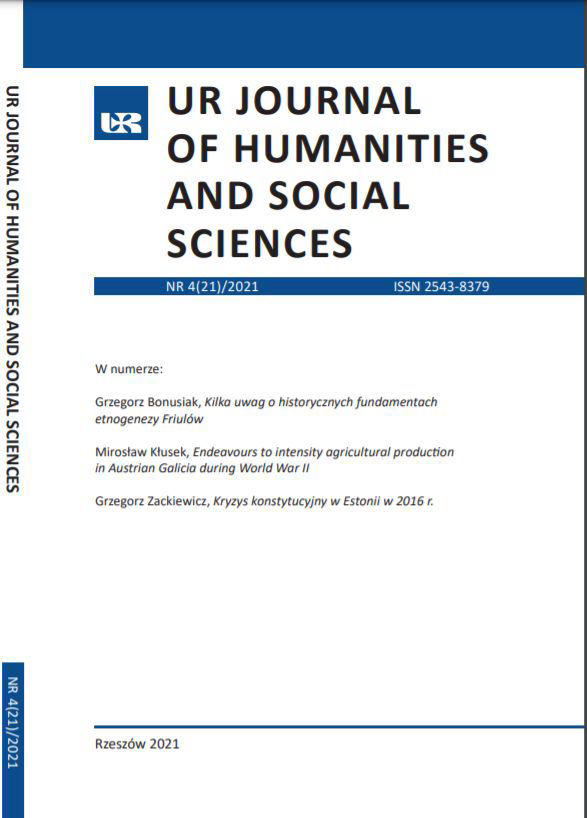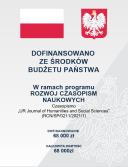Endeavours to intensity agricultural production in Austrian Galicia during World War II
DOI:
https://doi.org/10.15584/johass.2021.4.2Keywords:
Austrian Galicia, World War II, agriculture, agricultural production, crop contingentsAbstract
The most negative factors having affected the effectiveness of agricultural production in Austrian Galicia were both the unprofitable agrarian structure and the structure of use of arable land, and also the lack of modernisation of the agricultural production process. This situation contributed to the emergence of the extensive nature of the agricultural production and its low efficiency. After the German Reich had captured Western Galicia in 1939, and Eastern Galicia in 1941, the maximum intensification of agricultural production of this region was set as a primary goal. This was planned to be achieved by the mechanisation of the production process and improvement of the agricultural industry, followed by the growth of fertilisation and chemical treatment of crops, land improvement and the restructuring of arable land. In addition to this, farmers’ education and the consolidation of agricultural holdings were schemed along with the dissemination of high yielding varieties of grains and root crops, horned cattle and pig husbandry. The aim of the German actions listed above was to supply the Wehrmacht with food, and in a broader perspective to prepare the land for German colonization following the ultimate German victory.
Downloads
Downloads
Published
How to Cite
Issue
Section
License
Copyright (c) 2021 Wydawnictwo Uniwersytetu Rzeszowskiego

This work is licensed under a Creative Commons Attribution-NonCommercial 4.0 International License.



